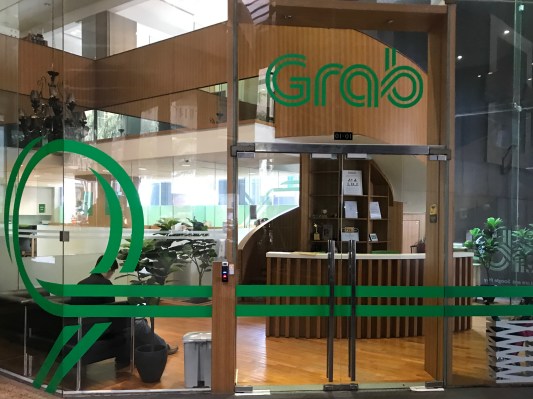Grab, the ride-hailing firm that acquired Uber’s Southeast Asia business earlier this year, is raising a new round of funding and it just announced that it will be led by Toyota, which is committing $1 billion in capital. The deal values Grab at over $10 billion, a source close to the company told TechCrunch.
In return for its capital, Toyota will also get a board seat and the opportunity to place an executive within Grab’s team. Grab said it plans to work with its new investor “to create a more efficient transport network that will ease traffic congestion in Southeast Asia’s megacities” and help its drivers increase their income. In particular, that will involve close collaboration with the Toyota Mobility Service Platform (MSPF), which is working on areas such as user-based insurance, new types of financial packages and predictive car maintenance.
“Going forward, together with Grab, we will develop services that are more attractive, safe and secure for our customers in Southeast Asia,” said Toyota executive vice president Shigeki Tomoyama in a statement.
Toyota put money into Grab via its Next Technology Fund last year, but this time around the capital comes directly from the parent company. Hyundai is another automotive firm that has backed Grab.
The new round follows a $2.5 billion investment that was jointly led by SoftBank and China’s Didi, two long-time investors put an initial $2 billion up for the round last year. That round quietly closed at the start of 2018, Grab has confirmed but so far it hasn’t said who put up the additional money.
The company’s valuation had been $6 billion but, unsurprisingly since the Uber deal, it has jumped by a further $4 billion based on Toyota’s investment.
Grab now claims over 100 million downloads of its app across eight countries in Asia, including Singapore, Indonesia, Vietnam, Thailand and more. The firm said its annual revenue run rate has now surpassed $1 billion, although it declined to provide profit or loss numbers.
While it did remove Uber from the region by acquiring its business — although the deal didn’t go as smoothly as had planned — that exit prompted new entrants to jump into the region with Indonesia’s Go-Jek, in particular, looking like the key foe. Go-Jek, which is valued at some $4.5 billion, recently announced plans to expand to four new markets having itself raised a significant $1.5 billion round.
Aside from competition, Singapore-based Grab has kept its busy in recent years expanding its services from point-to-point taxis and private car hailing to include mobile payments, food delivery and dock-less bicycles. Earlier this month it officially unveiled Grab Ventures, a unit focused on helping building out an ecosystem through investment and mentoring.
Grab Ventures is not a VC arm, but it does plan to make 8-10 investments over the next two years while it will also open an accelerator program for “growth-stage” startups — although that doesn’t include equity investments for cash. The division will also focus on incubating new business ideas, which include its recently launched Grab Cycles product which aggregates on-demand bikes from a range of companies.
